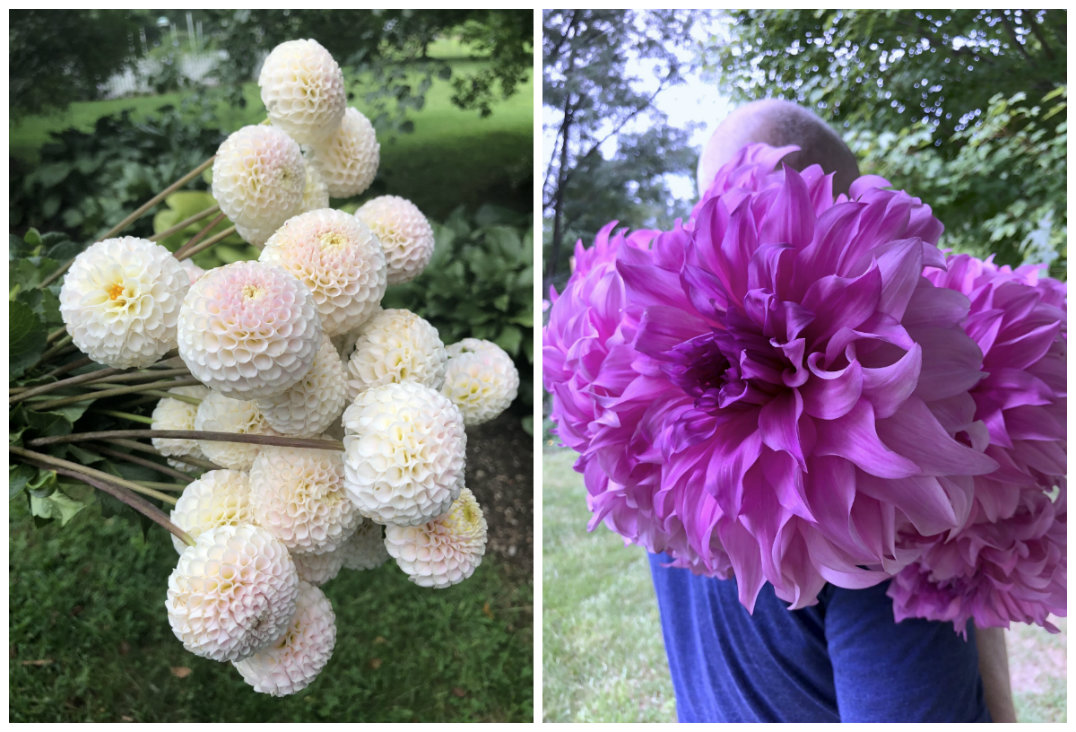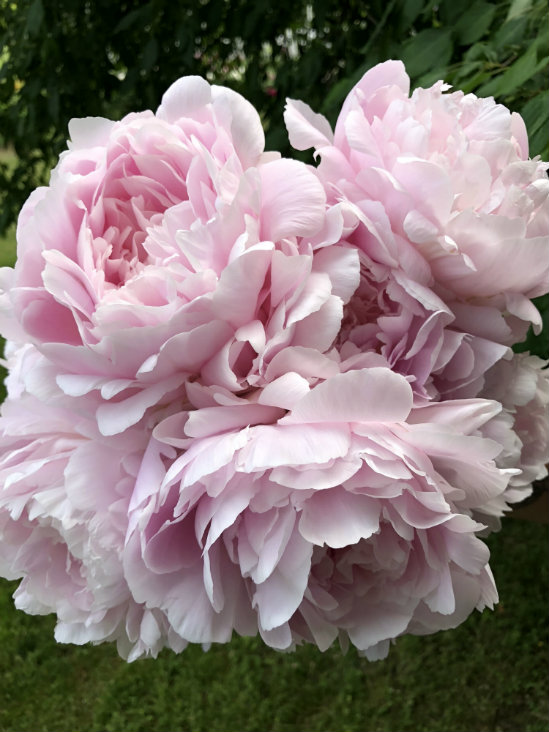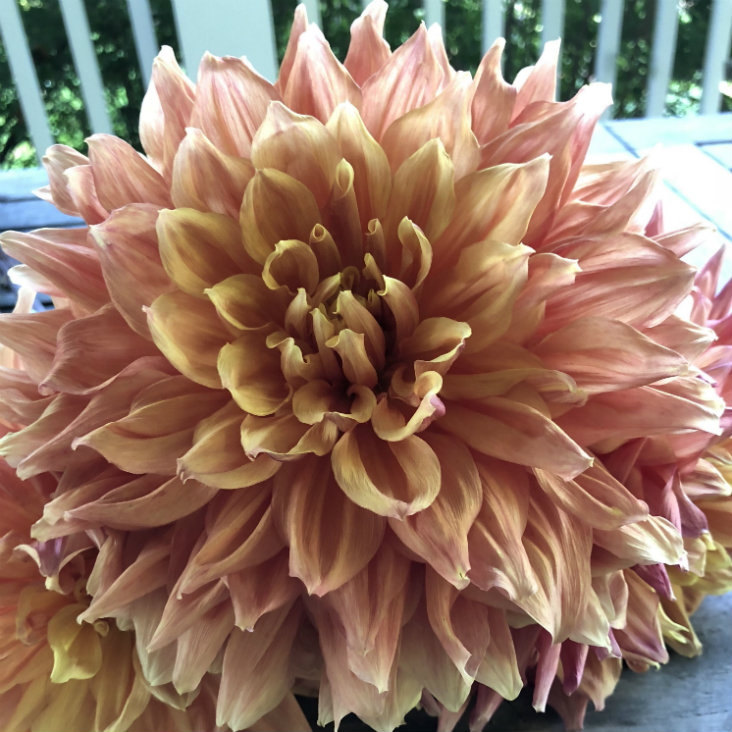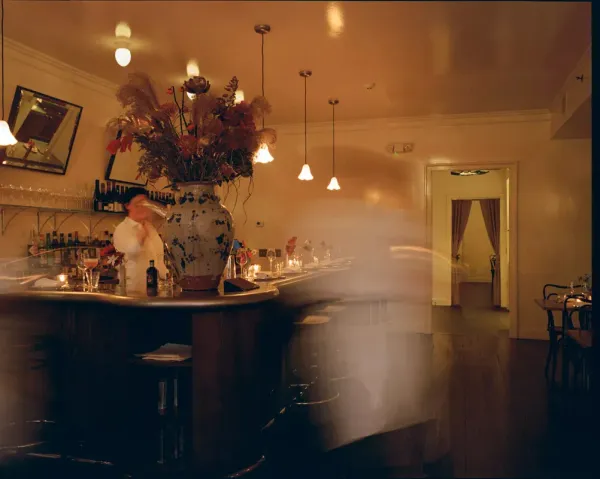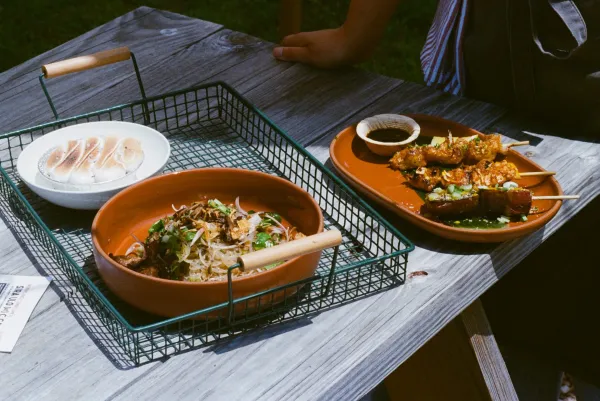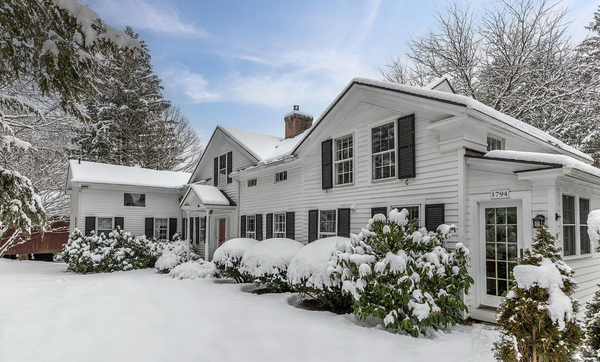With Most Weddings Cancelled, A Flower Farm Pivots To The CSA Model
What could boost your spirits more than a CSA share from one of the region's premier flower farms?

What could boost your spirits more than a CSA share from one of the region's premier flower farms?
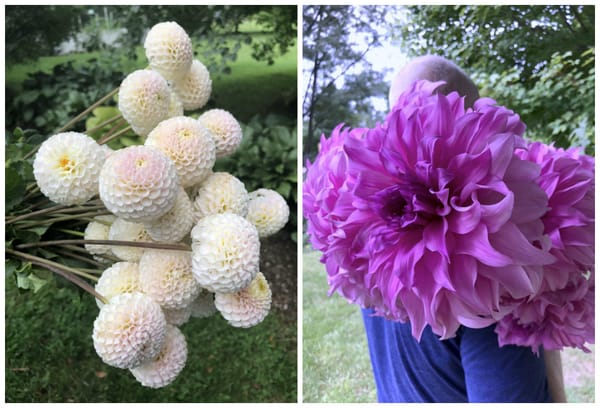
Dahlia duo: Camano Zoe and Vassio Meggos. All photos courtesy Bear Creek Farm
Debra Kaye is a brand developer, so she’s used to researching and solving. Needing flowers for her own wedding, she planted dahlias at her country house in Stanfordville, New York. When she had so many she didn’t know what to do with all of them, she brought them back to the city to local stores, who sold them immediately. She grew more, and became a flower farmer, owner of Bear Creek Farm in Dutchess County. But then along came another complication, thanks to COVID-19: what to do with tens of thousands of flowers ready to bloom and no place for them to go?
You start a flower CSA, of course.
Bear Creek Farm, going into its fifth season, primarily services designers and wholesalers in the city for weddings and celebrations, and was starting to build its internet business. The dahlia bulbs had really taken off; Kaye says she sold every tuber this year. Bear Creek’s flowers were named best dahlias of New York by New York magazine and Luxe Life magazine called them the best wedding flowers in the Hudson Valley. They’re sold at Union Square Market and wholesale markets throughout the tri-state region. Next year Bear Creek will be doing a test run with the famed White Flower Farm selling its brand of tubers — the first time White Flower will sell a product other than its own brand.
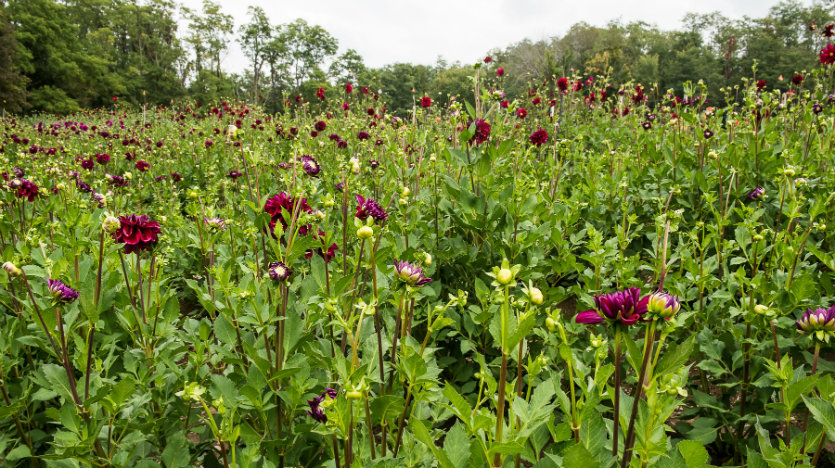
Dahlia fields at Bear Creek Farm
But for this season, there are no celebrations, no demand for cut flowers. Which is why, Kaye says, she had to make an immediate pivot and start the CSA. That was a mere four weeks ago, and once again, the former CEO of a large ad agency in Italy, developer of dog foods, chocolates, baby products and other consumer goods, has found a successful solution to her problem. Not that it was easy.
The challenge was finding buyers. “Our business was New York City-based, and a CSA is locally based,” Kaye says. “I had no customers up here.”
But she had reached out and got help from other local businesses, who sent out mailings for her or lent her their mailing lists. It didn’t take long for 60 people to sign on as her first members.
While she’s not doing a full-season-long share like most CSAs, she’s selling according to each type of flower’s flowering season, which typically lasts 4 to 6 weeks. First up were her Iceland Poppies; that share just finished. June’s share will be for peonies, eight varieties available in two types of share: a standard bunch of six stems, or the large 10-stem bunch.
Dahlias, the Bear Creek Farm specialty (and the best they'd ever seen, city florists have told Kaye), will start around the first week of September. The farm cultivates over 100 varieties in many sizes and colors, some over 10 inches in diameter.
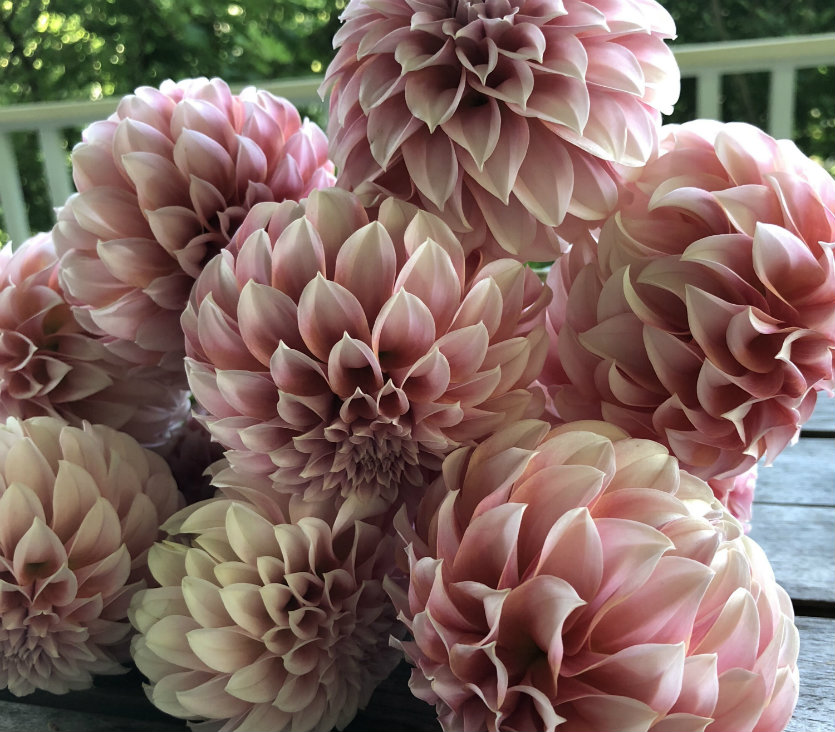
Peaches 'n' Cream dahlias
Shares are picked up —contactless — at Bangallworks, a coworking space in Stanfordville, any day of the week.
Now, at least some of Kaye’s hundreds of thousands of flowers will have found homes.
“Little did I know that flower farming would be all consuming,” Kaye says. “It took over my life and it’s the hardest thing I’ve ever done.”
But, she adds, “You deliver a flower and it brings such joy and happiness to someone.All of the other products I’ve developed were just that — products. These flowers really do make a difference in people’s live. This is why I do it.”
